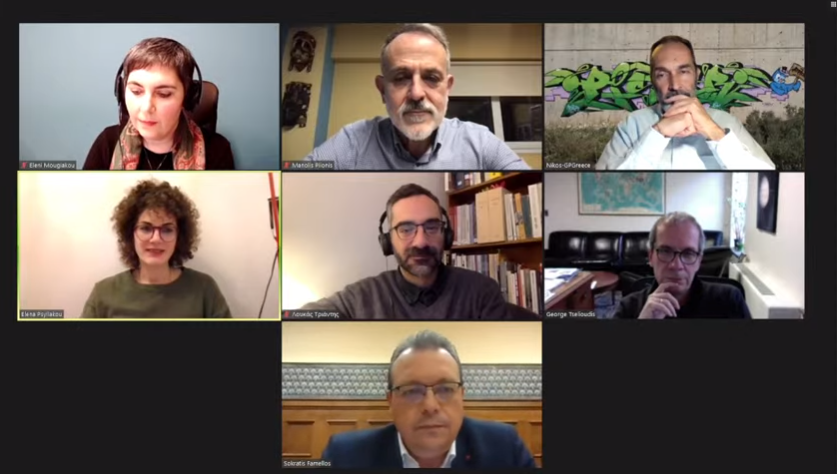Elena Psyllakou, Communications Officer of Τhe Green Tank, participated in the online conference “Science and Politics” organized by the Nicos Poulantzas Institute, moderating the panel discussion “Environmental data and politics: from climate change deniers to the Green Taxonomy”.
Having the interplay between science and politics as a point of departure, the main themes of the session were the role of scientists in environmental policy making with emphasis on the current context of the war in Ukraine and the energy crisis; the organisation, networking and operation of research institutions as well as their participation in consultation processes and the dissemination of scientific knowledge; climate resilience and urban and regional planning for climate adaptation.
In her opening statement, the Green Tank Communications Officer pointed out that we have reached the moment of common recognition of the climate crisis. After all, we are now experiencing its implications in our daily lives. Therefore, it seems that we have moved from the denial that marked the first decades of alarming scientific data on climate change to a coordinated, to some extent, mobilization in order to tackle the climate crisis at an international level.
She further stressed that we are now in the era of the European Green Deal and revised climate targets; the era of national climate laws and planning to mitigate the climate crisis; the era of energy adaptation and transition to sustainable energy sources for the planet. The main common goal of these actions is to reduce and ultimately to reach zero net greenhouse gas emissions as well as to contain the increase in global temperature to 1.5 °C.
However, in addition to the taken-for-granted political differentiations that underlie policy-making, we are also at the moment of a war that complicates this common effort. The balance between scientific evidence and policy making is being disrupted; political disagreements re-emerge, and the question of how we can thus ensure a common path to tackle the climate crisis and strengthen participatory processes in decision-making is left open. To this, Elena Psyllakou, added the question of how to communicate the convergences between science and politics in an era of extensive information flow but also of intense misinformation, fake news, and growing mistrust.
The panel comprised of the following participants:
Nikos Charalampides, Executive Director, Greenpeace Greece; George Tselioudis, Researcher, Godard Institute, NASA, Adjunct Professor of Applied Physics, Columbia University; Manolis Plionis Professor, Department of Physics, Aristotle University of Thessaloniki, Director, National Observatory of Athens, Member, CLIMPACT-The National Network for Climate Change; Eleni Mougiakou, Agricultural Engineer – Urban Green / GIS Expert, Co-founder of Commonspace – Coordinator of participatory Lab; Loukas Triantis, Architect / Urban Planner, Adjunct Lecturer, University of Crete; Socrates Famellos, Former Alternate Minister of Environment & Energy, MP, Shadow Minister of Environment & Energy, SYRIZA-Progressive Alliance.
The conference was held online 16-18 March 2022.
The session “Environmental data and politics: from climate change deniers to the Green Taxonomy” took place on Thursday 17/03/2022 and it is available (in Greek) here.



















































































































































































































































































































